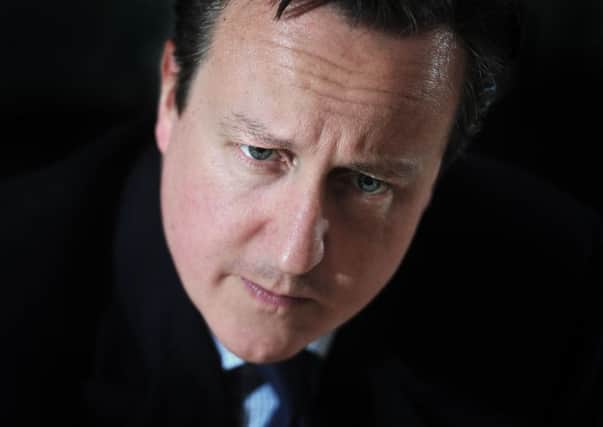What next for youngest ex-Prime Minister in 169 years?


The youngest prime minister since 1812, it also meant that Mr Cameron – 50 next month – had the dubious honour of becoming the youngest former prime minister in 169 years when he lost the EU referendum in June and left 10 Downing Street less than three weeks later (the Earl of Rosebery was just a year younger when he resigned in 1847).
Even though Mr Cameron signalled a desire to serve his Witney constituency from the backbenches, and was present in the Commons when his successor Theresa May made her first Parliamentary statement as PM on the renewal of the Trident nuclear deterrent, it was always going to be potentially awkward if he wished to speak or found himself at odds with Ministers on issues like the expansion of grammar schools.
Advertisement
Hide AdAdvertisement
Hide AdAfter all, Mr Cameron did not need any reminding about the destabilising effect that former leaders can have on their successors. As a fresh-faced graduate, he was advising John Major in 1991 while Margaret Thatcher was still a brooding presence in the Commons after fulfilling her promise to be a ‘back seat driver’.
With time to forge a new role, he also did not fancy comparisons with Edward Heath whose 27 years in the Commons after leaving Downing Street in 1974 were described as the ‘longest sulk’ in history – or the unhappy time that both John Major and Gordon Brown spent on the backbenches after losing the 1997 and 2010 elections respectively.
It was Tony Blair who broke the mould in 2007 when he resigned as Prime Minister and MP for Sedgefield on the same day. As William Hague, Mr Cameron’s first Foreign Secretary, observed wryly: “Former prime ministers are either accused of doing too little or being a distraction.”
What Lord Hague, the former Richmond MP, was too prudent to say is that this decision – still a difficult one because of the political closure that it brings about – also opens up a raft of lucrative new earning opportunities which don’t have to be registered with Parliament. It also avoids embarrassing questions about who comes first – commercial considerations or constituents?
Advertisement
Hide AdAdvertisement
Hide AdLike all former premiers, Mr Cameron will have been inundated with offers as he spent the summer relaxing on the beach with his wife Samantha, and their young children, as they pondered their family’s future without the relentless round-the-clock burdens of office. The serial rights to his memoirs will be worth a small fortune while there will be no shortage of directorships, though the former Conservative leader will just need to be wary of cashing in on his status as a former PM if the country begins to pay a heavy financial price for a referendum misjudgment which ultimately cost Mr Cameron his job, his career, his home and his reputation.
Mr Cameron will also be entitled to a knighthood, or a seat in the Lords, if he so chooses. Equally he may use his new-found freedom to champion the disabled and voluntary sector, issues which led to this little known shadow minister beating Haltemprice and Howden MP David Davis for the Tory leadership in 2005.
How ironic that Mr Davis is now responsible, as Brexit secretary, for negotiating Britain’s exit from the European Union while his former nemesis has become yesterday’s man. And while Nick Clegg, the Deputy Prime Minister in the 2010-15 coalition, cannot resign because the Lib Dems would probably lose his Sheffield Hallam seat, the former Tory leader had no such concerns when he briefed his constituency chairman and staff – it will require a political earthquake off the Richter Scale for the Tories to lose Witney in the forthcoming by-election.
Yet, there again, Mr Cameron could not have envisaged the dramatic turn of events in the 16 months turbulent months since that heady day in May 2015 when he led the Tory party to its first outright election victory since 1992. He has much to ponder about the brutal and unforgiving nature of politics as he contemplates his 50th birthday and a new career.
Advertisement
Hide AdAdvertisement
Hide AdDAVID CAMERON’s now former seat of Witney is one of the safest in Britain after he won a 25,155-vote majority at the last election. It also has a rich political history.
Created in 1983 after boundary changes in West Oxfordshire, it was represented by Douglas Hurd who became Home Secretary and Foreign Secretary.
He was succeeded in 1997 by Shaun Woodward who caused shockwaves in 1999 when he defected to New Labour, paving the way for Mr Cameron to be elected in 2001. It means the most intriguing aspect of the forthcoming by-election will be the list of potential candidates wanting to seize this vacancy.